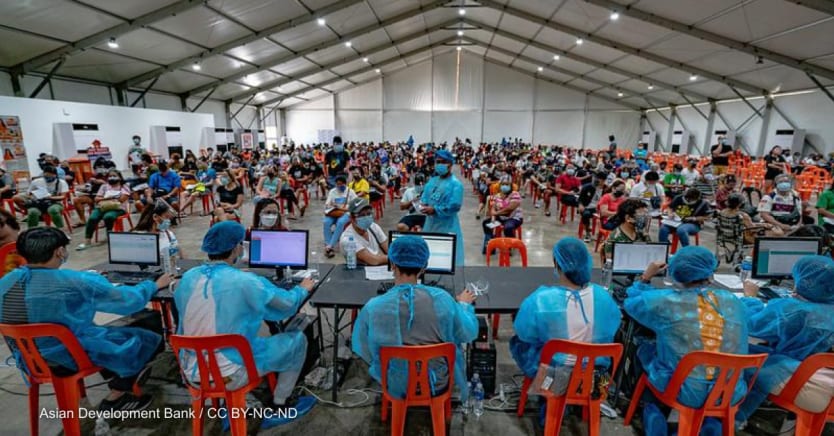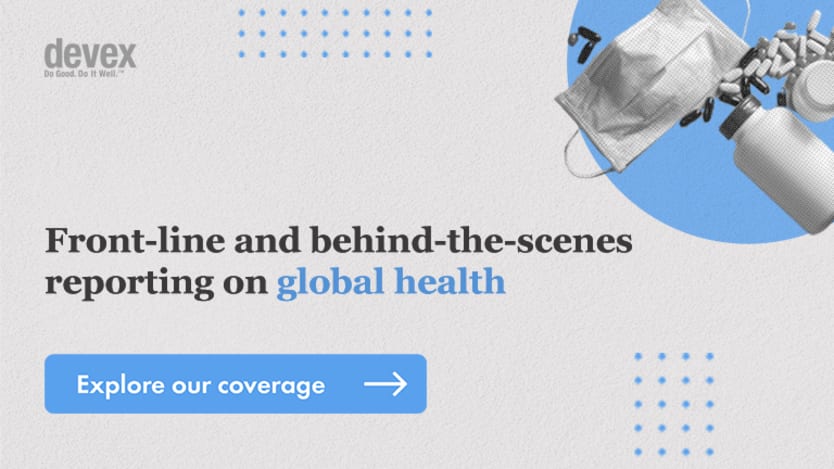
The International Monetary Fund has a stark warning for the global economic recovery, saying the divergence between higher- and lower-income nations is getting worse because of the coronavirus and vastly uneven vaccine rollouts.
In its updated “World Economic Outlook” released Tuesday, IMF said overall economic risk remains significant. It revised upward the projected economic growth in advanced economies but downgraded the prospects for emerging and developing markets, showing that the recovery is largely confined to specific regions and countries.
The global economy is projected to grow 6% in 2021 — the strongest rebound since 1980, when the fund started keeping records — and 4.9% next year. The 2022 figure is a 0.5 percentage-point increase over the previous projection made earlier this year. It is largely driven by expectations of further fiscal support in the United States and generally strong growth in wealthier nations.
“A worsening pandemic and tightening financial conditions would inflict a double hit on emerging market and developing economies and severely set back their recoveries.”
— Gita Gopinath, chief economist, IMF
But for emerging and developing markets as a group, growth projections for this year were revised downward by 0.4 percentage points from the previous IMF outlook, on the back of lower levels of vaccination against COVID-19, higher infection rates, and less fiscal firepower to support their economies.
“The reason for the downgrades and the biggest risks on the horizon are indeed the virus and the pandemic,” Gita Gopinath, IMF’s chief economist, told reporters Tuesday. She warned of political instability and geopolitical risks if inequality worsens.
The delta variant of COVID-19 is the main concern, with infection rates in India and other parts of Asia driving lowered economic forecasts. Sub-Saharan Africa is also facing a third wave of the pandemic, with some positive economic trends out of South Africa being offset by negative revisions elsewhere.
While advanced economies saw annual per capita income decline by 2.8% relative to pre-pandemic trends, IMF said the decline was a much heftier 6.3% for middle- and lower-income countries, aside from China.
Vaccine access remains the most critical issue for the global recovery, with IMF saying that even rich nations with better rollouts may face headwinds if the virus continues to circulate around the world.
An IMF calculation showed that across advanced economies, nearly 40% of people have been fully vaccinated. That rate is 11% in emerging markets and only a “tiny fraction” in the lowest-income nations, Gopinath said.
IMF urged governments to improve cooperation on fighting the pandemic, saying it would have strong economic benefits.
“Better global cooperation on vaccines could help prevent renewed waves of infection and the emergence of new variants, end the health crisis sooner than assumed, and allow for faster normalization of activity, particularly among emerging market and developing economies,” the latest report said.
Another area of strong divergence is the fiscal support governments are able to offer. For many of the world’s lower-income countries, the arsenal of support for local economies was depleted already last year.
At the same time, the lowest-income nations may face upward price trends, particularly if food costs remain elevated, Gopinath noted.
Regarding inflation, Gopinath said central banks should not take action yet but be prepared to tighten policy if rising prices are persistent. This could make borrowing costs rise for middle- and lower-income countries, amid existing concerns about defaults on debts.
Sign up for Devex CheckUp
The must-read weekly newsletter for exclusive global health news and insider insights.
“A worsening pandemic and tightening financial conditions would inflict a double hit on emerging market and developing economies and severely set back their recoveries,” Gopinath cautioned in a blog post on IMF’s website.
One way to help ease the pressure, according to the report, is IMF’s plan to issue $650 billion dollars in Special Drawing Rights, or SDRs, which is expected to occur next month.
While these funds can help countries around the world cope with the economic fallout from the pandemic, by bolstering reserves, the allocation will favor wealthier nations, as the distribution is based on the quota share in IMF.
Activists and some governments have been calling for wealthier nations to donate chunks of their allocation to those in need. Gopinath did not explicitly endorse the proposal but appeared to lend her backing to the idea.
The impact of the SDRs “can be further magnified if rich nations voluntarily channel their SDRs to emerging market and developing economies,” she said.

